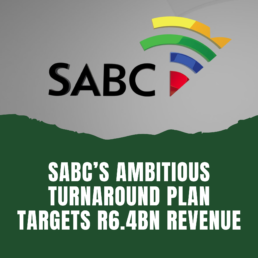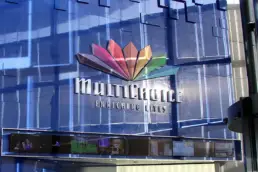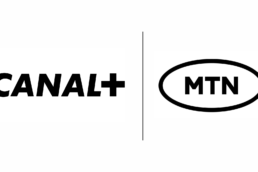The South African Broadcasting Corporation (SABC) has outlined a five-year turnaround strategy aimed at reducing its dependence on government funding, as disclosed by the SABC’s chairperson, Khathutshelo Ramukumba, during a presentation to Parliament’s Portfolio Committee on Communications and Digital Technologies.
Ramukumba acknowledged that the assumption of self-sufficiency in funding operations was ambitious. The plan projects aggressive revenue growth to R6.4 billion by 2024/25, relying on increases of 15% in advertising revenue, 28% in sponsorships, and 19% in TV licence income.
Yolande van Biljon, SABC CFO, characterized achieving these targets as challenging due to the necessity of investing in content to attract advertisers. The SABC incurred losses of R1 billion in 2022/23, with projected net losses of R590 million in 2023/24, R242 million in 2024/25, and R27 million in 2025/26 before aiming for a profit of R907 million in 2026/27, contingent on the successful execution of the corporate plan.
The SABC faced a critical financial situation termed ‘day zero’ prompting immediate action. The board implemented a short-term strategy to circumvent this crisis, although not all measures could be realized, averting a complete shutdown.
Despite the aspiration for financial autonomy, Ramukumba stressed the importance of continued government funding to support the SABC’s public service mandate, which includes informing, educating, and entertaining citizens in all official languages.
The government’s role in funding is further justified by the widespread nonpayment of TV licences, amounting to an estimated R44.2 billion owed by 9.2 million account holders.
Furthermore, comments from Mapulane in November 2023 highlighted the SABC’s precarious financial position, worsened by the failure of previous bailout measures. A subsequent request for additional funding of R1.5 billion from the National Treasury was declined.
Related Posts
June 12, 2024
MultiChoice Financials Reflect Difficult Year
MultiChoice Group Limited (MCG) has released its financial results for the year…
June 11, 2024
Uganda Enters Into Agreement With Turkish Company On Hoima Stadium Build
The Government of Uganda has entered into a contract with the Turkish company…
June 10, 2024
Canal+ and MTN Cameroon Launch Streaming Platform
MTN Cameroon and Canal+ have launched a streming platform offering films,…




